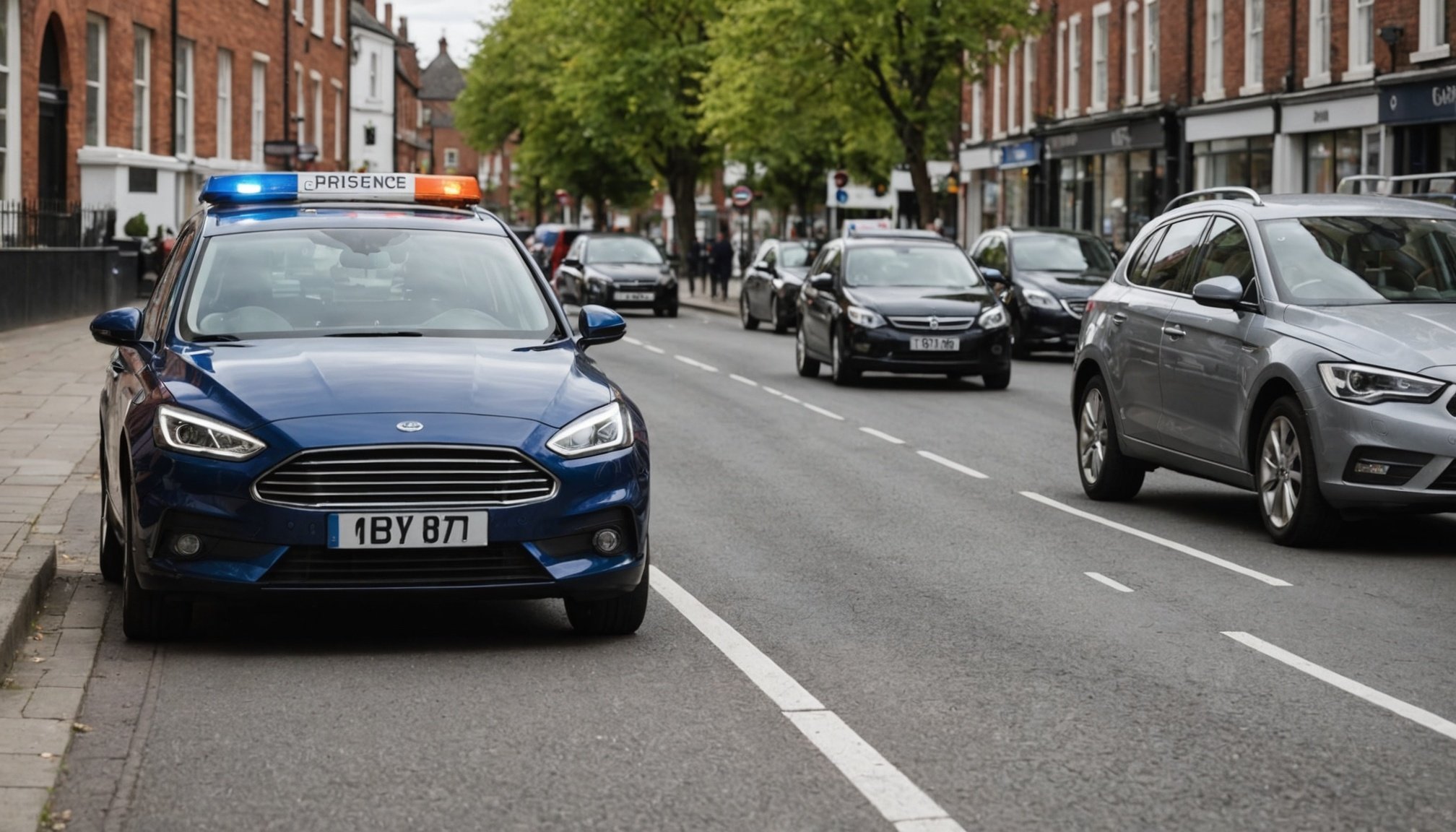Driving under the influence of drugs is a serious offence in the UK. Understanding the rules and penalties associated with drug driving is essential for all motorists. In this article, we will explore the key aspects of drug driving laws, the consequences of breaking these laws, and the steps you can take to stay compliant. Whether you are a new driver or a seasoned motorist, this guide provides valuable information to ensure you stay safe and on the right side of the law.
Understanding Drug Driving Laws
Drug driving refers to operating a motor vehicle while impaired by illegal drugs, prescription medications, or over-the-counter substances that affect your ability to drive safely. These laws are designed to protect all road users from the dangers posed by impaired driving. The UK has strict measures in place to detect and penalise those who drive under the influence.
Have you seen this : What are the qualifications and training required to become a driving instructor in the UK?
In the UK, both controlled drugs and certain legal medications fall under scrutiny if they impair your driving ability. The law differentiates between being "impaired by drugs" and exceeding specific limits for certain substances. If you are suspected of drug driving, you may be required to provide a specimen of blood or urine for testing.
Legal Limits for Common Drugs
The UK has set specific legal limits for various drugs in your blood. These limits apply to both recreational and controlled substances. For instance, the limit for cannabis (THC) is 2 micrograms per litre of blood, while the limit for cocaine is 10 micrograms per litre of blood. Even smaller amounts of other substances, such as LSD and heroin, can lead to prosecution if found in your system above the legal limits.
Have you seen this : What are the specific guidelines for using snow chains and winter tires in the UK?
Enforcement and Detection
Enforcement of drug driving laws involves breath testing, field impairment assessments, and laboratory analysis of blood or urine samples. Police officers are trained to spot signs of drug impairment, including erratic driving, poor coordination, and unusual behaviour. If you are pulled over and suspected of drug driving, you may be asked to perform a roadside saliva test or undergo a field impairment test.
It is crucial to remember that even small amounts of certain drugs can impair your driving ability and put you at risk of legal action. Therefore, always check the effects of any medication you are taking, and avoid driving if you feel unfit.
Penalties for Drug Driving Offences
The penalties for drug driving offences in the UK are severe and can have long-lasting consequences. The law aims to discourage drug driving by imposing harsh sanctions on those who break it. Understanding these penalties can help you make informed decisions and avoid costly mistakes.
Immediate Consequences
If you are found guilty of drug driving, you can expect immediate consequences. These include a minimum one-year driving ban, an unlimited fine, and up to six months’ imprisonment. The exact penalty depends on the nature of the offence and the level of impairment caused by the drugs.
In addition to these penalties, a drug driving conviction will result in a criminal record. This can impact various aspects of your life, including employment opportunities, travel restrictions, and insurance premiums. A conviction may also lead to the seizure of your vehicle, especially if you have been involved in previous driving offences.
Long-Term Implications
Beyond the immediate penalties, a drug driving conviction can have long-term implications. A criminal record can affect your ability to secure certain jobs, particularly those that require a clean driving history or involve working with vulnerable populations. It can also impact your ability to travel to countries with strict entry requirements for individuals with criminal convictions.
Insurance companies view drug driving convictions as a high risk. Consequently, you can expect significantly higher premiums or even refusal of coverage. The stigma associated with drug driving can also affect your personal and professional relationships.
Rehabilitation and Education
In some cases, individuals convicted of drug driving may be required to attend a rehabilitation program or complete an educational course. These programs aim to address the underlying issues related to drug use and driving, helping individuals make safer choices in the future. Participation in such programs can demonstrate a commitment to change and may positively influence sentencing decisions.
Preventing Drug Driving
Preventing drug driving begins with awareness and education. By understanding the risks associated with driving under the influence of drugs, you can make informed decisions and avoid dangerous situations. Here are some practical steps to prevent drug driving and ensure the safety of all road users.
Know the Effects of Drugs
Different drugs have varying effects on your body and mind. Some substances, like cannabis, can impair your reaction time and coordination, while others, like cocaine, can cause overconfidence and reckless behaviour. It is essential to understand how any drug—whether prescribed, over-the-counter, or illegal—affects your ability to drive.
Always read the labels of medications and consult with a healthcare professional if you are unsure about their impact on your driving. If a medication has the potential to cause drowsiness, dizziness, or other impairments, it is best to avoid driving until you know how it affects you.
Plan Ahead
Planning ahead can help you avoid the temptation to drive under the influence. If you know you will be taking medication or using substances that may impair your driving, arrange for alternative transportation. This could include using public transport, booking a taxi, or asking a friend or family member for a lift.
Additionally, consider setting up a designated driver system within your social circle. This ensures that there is always a sober person available to drive, reducing the risk of drug driving incidents.
Stay Informed
Staying informed about the latest drug driving laws and regulations is crucial. The UK government regularly updates its list of controlled drugs and the legal limits for each substance. By keeping up-to-date with these changes, you can ensure that you remain compliant and avoid inadvertent offences.
Seek Help if Needed
If you struggle with substance abuse or addiction, seeking help is vital. There are numerous resources available, including counselling services, support groups, and rehabilitation programs. Addressing these issues can significantly reduce the risk of drug driving and improve your overall quality of life.
Legal Procedures and Your Rights
Understanding the legal procedures and your rights when it comes to drug driving is essential. This knowledge can help you navigate the process if you are ever suspected of driving under the influence of drugs. Here, we will outline the key steps involved and what you should expect.
Police Stop and Testing
If the police suspect you of drug driving, they have the authority to stop your vehicle and conduct necessary tests. This typically begins with a roadside breath testing to rule out alcohol impairment. If the breath test is negative, the officer may proceed with a roadside saliva test or a field impairment assessment.
During the field impairment assessment, you will be asked to perform tasks that evaluate your coordination and cognitive functions. This may include walking in a straight line, standing on one leg, or following a moving object with your eyes. If you fail these tests, you will be taken to a police station for further testing.
Blood and Urine Samples
At the police station, you will be required to provide a specimen of blood or urine for laboratory analysis. This sample will be tested for the presence of controlled drugs and compared against the legal limits. It is important to note that refusing to provide a specimen is a serious offence and can result in penalties equivalent to those for drug driving.
Legal Representation
If you are charged with drug driving, seeking legal representation is advisable. A qualified solicitor can help you understand your rights, navigate the legal process, and present a strong defence. This is particularly important if you believe that the test results are inaccurate or if there were procedural errors during the testing process.
Court Proceedings
Drug driving cases are typically handled in a magistrates’ court. During the proceedings, evidence will be presented, including the results of your blood or urine tests, witness statements, and any other relevant information. You will have the opportunity to present your defence and cross-examine witnesses.
If you are found guilty, the court will determine the appropriate penalty based on the severity of the offence and any mitigating factors. It is crucial to adhere to all court orders and comply with any imposed penalties to avoid further legal complications.
Driving under the influence of drugs is a dangerous and illegal activity that carries severe penalties in the UK. By understanding the rules, recognising the high risk involved, and taking preventive measures, you can avoid the legal and personal consequences associated with drug driving. Remember that staying informed, planning ahead, and seeking help if needed are key steps to ensuring your safety and the safety of others on the road. Always prioritise responsible driving to contribute to a safer road traffic environment for everyone.











